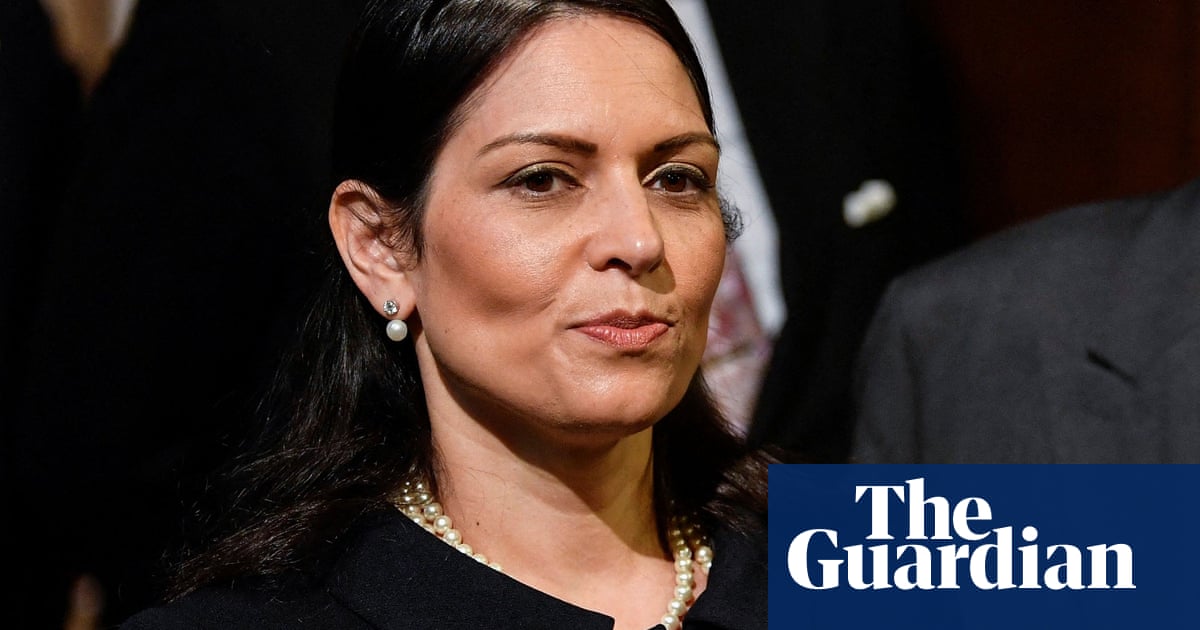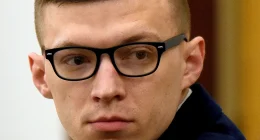
Police leaders have accused Priti Patel of a “power grab” that would allow the home secretary to intervene in local law enforcement matters and silence chiefs who want to speak out on issues deemed politically sensitive.
An extraordinary row has broken out behind the scenes, with police bosses accusing Patel of trying to obtain new powers without parliamentary approval.
The vehement backlash from chief constables and police and crime commissioners (PCCs) comes after an attempt by the government to redraft a written protocol that tries to define where the responsibility lies in policing.
Parts of the plan have been labelled “profoundly dangerous” anda “power grab threatening operational independence” by one chief constable. Police and crime commissioners, in a private response, described some of the government proposals as “ultra vires”, meaning going beyond the home secretary’s legal authority.
The government handed powers over local policing to PCCs as part of its localism agenda a decade ago. But one government proposal makes it easier for the home secretary to intervene in such matters, while another increases the pressure on chiefs and PCCs to answer to the home secretary.
A Home Office source with close knowledge of Patel’s thinking rejected the criticism. They said: “It is not a power grab, it is not a threat to operational independence, but making clear whose job and whose responsibility things are in the policing world. Should it not be the home secretary’s role to ask questions?”
The row at the top of the criminal justice system in England and Wales centres on the Home Office’s attempt to revise the policing protocol, which was first produced in 2011 and came into force in January 2012.
The Home Office draft of its new version, seen by the Guardian, was sent to chief constables and PCCs for their views, with consultation closing on 2 May. It sets out how the government, chief constables and police and crime commissioners should work together.
It is widely agreed that, after a decade, updating the original version is a good idea. But the new draft protocol gives the home secretary the right to demand answers from chief constables, which PCCs believe impinges on their role.
One chief constable said the protocol “expanded” the home secretary’s role beyond what is written in law.
Another said: “It was your party that gave these powers away, if they don’t like it, take it back with legislation through parliament. A lot of chiefs believe the way it is written now is ultra vires. They are angry.”
Since Patel became home secretary, her department has wanted more involvement in policing under a policy called “lean in”. The chief constable said: “They use the term leaning in. For the first time, the chiefs are leaning out.”
A Home Office source said the changes made sense and expressed bafflement at the opposition. “We are going to write down more clearly whose job is what, who can ask for information and who can do various things,” they said.
The 2012 version of the protocol made clear that the introduction of PCCs had “allowed for the Home Office to withdraw from day-to-day policing matters”.
The new version, police leaders say, tries to claw back power without parliamentary approval, with Patel and her officials wanting to expand her “legitimate role in holding PCCs and CCs [chief constables] to account”, and thus make it easier to take police leaders to task.
The proposed protocol says: “We propose to lower the threshold for home secretary intervention in appropriate circumstances. This would equip the home secretary to intervene earlier as required, thus reducing the risk of failing to deliver effective policing.”
Government proposals would also increase pressure on police leaders to provide the home secretary with information that she asks for, which they are not obliged to do. The document says: “In order to ensure that the home secretary is equipped with the information required to respond to the public and parliament, PCCs and CCs should expect the home secretary to ask chief constables for information about policing matters.”
In their private response, the Association of Police and Crime Commissioners said: “There is no formal statutory power for the home secretary to require the police and crime commissioner to give information … As such, any attempt to create a legal responsibility for police and crime commissioners to provide information to the home secretary through the protocol would be ultra vires.”
Also in the proposed protocol is a demand that chief constables act “in a politically neutral manner”, which has been added to the previous stricture that they must be impartial.
This is opposed by chief constables. One chief said they would be “fettered” and unable to comment on public policy that they believe may affect crime fighting – such as the effects of austerity. Another chief said it was so imprecise that they could not publicly speak out on issues of political dispute – such as tougher sentences or opposing the decriminalisation of cannabis, which is supported by some frontline politicians.
The elected police and crime commissioners said such a “recentralisation” cannot be done through “amendments to the protocol”. Instead, they said: “Creation of new powers of strategic oversight can only be achieved through primary legislation and must be subject to the full scrutiny that is required of primary legislation.”
Sign up to First Edition, our free daily newsletter – every weekday morning at 7am BST
In another section, they say, the “proposed change seeks to alter the constitutional relationship between the police, the people, and central government, which is one of the great strengths of British policing”.
The deep misgivings come despite the protocol’s foreword giving this reassurance: “The protocol cannot create new law, provide actors with powers they do not already have, or take away the discretion of any relevant body to use their existing powers.”
It adds: “By updating the protocol, we intend to bring greater clarity to the role of the home secretary in the policing landscape, as well as the role of chief constables, PCCs and police and crime panels.”
In a separate development, Patel will announce in a letter to police forces on Monday that she is easing conditions on the use of stop and search powers under Section 60 of the Criminal Justice and Public Order Act.
Section 60 powers give officers the right to search people without reasonable grounds in an area when they expect serious violence, and to look for weapons before they can be used, or those used in a recent attack.
The move effectively undoes limitations put in place in 2014. Changes include lowering the rank at which stop and search can be authorised, and extending the length of time the powers can be in force.
Source: Guardian







